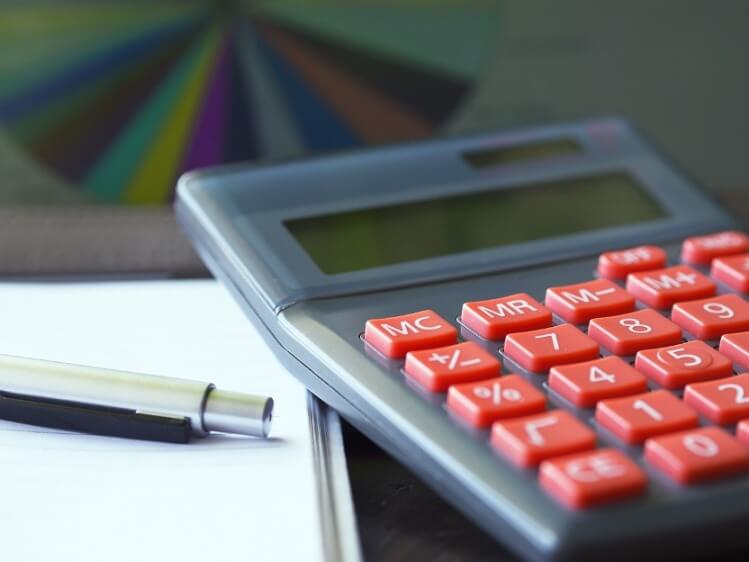Herein we will discuss our best tips for keeping good VAT records. Good housekeeping on the financial front is important to get on top of your VAT records and bookkeeping.
#1. Keep A Good Record of Your Trading Records
It is paramount that you keep all records the HMRC requires. Additionally, you must keep the files in an orderly fashion to make it easy for you to find them should HMRC want to inspect the records. Storing the records in a carrier bag will not suffice as a document storage method acceptable to the HMRC.
That said, the HMRC has not stipulated a method or set of rules. However, VATIT says the document storage system you use should allow you to identify and retrieve the document (receipt, document, etc.) you use to determine each figure in the VAT.
#2. Keep Proper Record of VAT
You should create a separate folder (paper or electronic) for your VAT containing:
- Copies of all the correspondence with HMRC
- A copy of your business’ VAT registration certificate
- All the copies of past submitted VAT return
#3. Carefully Monitor Your VAT Account
Typically, VAT figures are arrived at using this record:
- VAT on sales
- Less VAT on purchases
- The amount of VAT owed to HMR
C
If you run a small business with few transactions, you can keep the VAT records in a spreadsheet. For a better experience, we recommend you use a high-quality accounting system such as Xero to manage the records. Xero provides a more robust system with better audit trail and better protection against accidental destruction and loss.
On Xero, you can explore the credit and debit entries of your VAT account. You can ‘drill down’ into transactions that will make up your VAT return. Importantly, you can do all this for cash and accrual accounting your VAT or for operating a VAT scheme such as the Flat Rate Scheme.
#4. Create Sales Records
You must keep copies of all the VAT invoices your business issues. The records should show:
- Your business’ VAT registration number
- The VAT rate charged
- The tax point (this is the date the VAT counts as charged)
- A good description of the supply
Self-billing agreements – This is an agreement whereby the customer prepares the purchase invoice (essentially as sales invoice on your behalf). It should include:
- The name, VAT number, and the address of the self-billing supplier
- Copies of the self-billing agreements as reviewed annually
#5. Keep Intricate Records Of All The Purchasing Activities
You should keep a record and copies of all the purchase invoices and receipts your business receives showing:
- Export documents recording all overseas trade
- Original VAT invoice or similar high-quality evidence indicating the VAT paid on purchases
- Credit notes and or other documents that change the value of any supply
HMRC does accept electronic copies of documents as your evidence as long as the document contains the following information:
- Your business name on the electronic invoice; you can recover the VAT on invoices your business gets (or VAT registered entity in the case of a sole trader)
- The VAT rate charged
- The VAT registration number of your supplier
- The VAT value charged – ensure you look out for exempts or zero rated elements in the invoice and do not just assume entire invoices are vat able supplies
- The tax point
That said, generally, receipts do not show your business name, and often time they do not indicate the VAT separately. As such, you can use the VAT value included in the total receipt to calculate VAT, if the supplier’s VAT registration number is included in the receipt.
At the time of writing this article, the VAT rate is 20%. This makes the VAT fraction £X / 6 – not to be confused with £X / 5.
For instance, if a receipt has a value of £12 / 6, the VAT is £2 or (£10 + £2 VAT).
#6. Things That May Catch You Out
You should keep a record of:
- All the goods you take from the stock for private use, or you give away
- All the bad debt you write off (as well as proper reclaim of the VAT)
- All the items you cannot make a VAT reclaim – for example, business entertainment
- The VAT claimed on mileage
Tax is changing all the time so you need to be aware of such changes.
#7. Record Retention
Even though HMRC allows business and business people to adjust return forms for a period of up to four years and the current return period, they require you to retain the VAT records a minimum of 6 years and ten years for those using VAT MOSS service.
Tip: In the case of VAT associated with buildings and land, you might be required to keep the records for up to 20 years.
To store the data, you can store the records on hard copies, electronically, or as part of an accounting/booking-keeping software program. Importantly, the records should be readable and accurate.
In case you lose the VAT invoice, or in case the documents are no-longer readable, you should ask the supplier to give you a copy marked ‘duplicate’.
You can always request the HMRC in wiring to shorten the storage period if the storage proves a challenge for you or your business. For instance, if and when your business ceases to exist.
Finally, if you feel your time is best spent doing things that matter to you, such as running other parts of your business and making sales consider outsourcing this part of business administration to bookkeepers or accountants.
